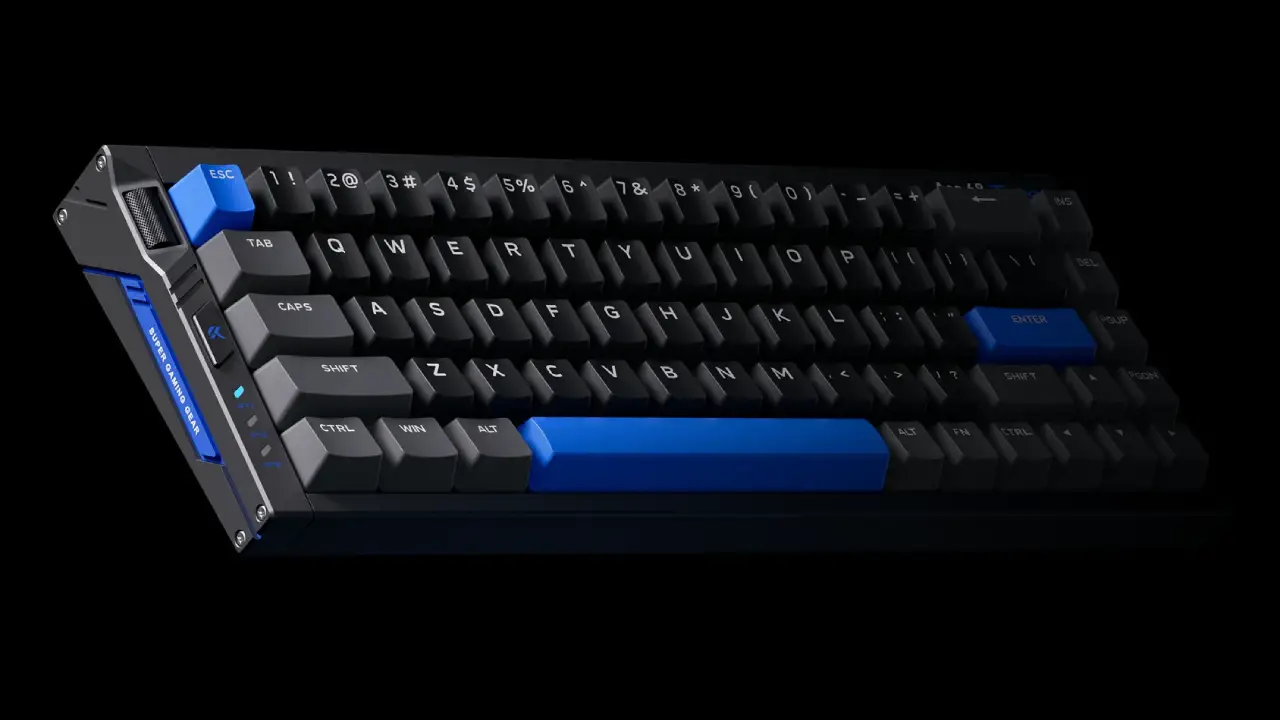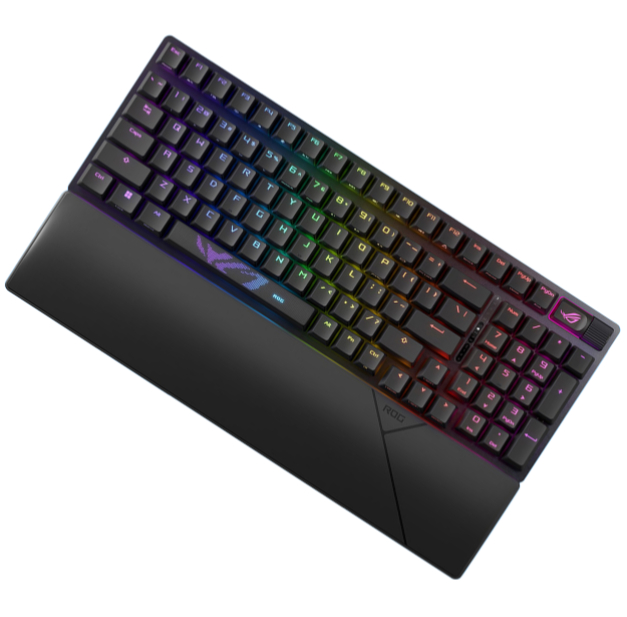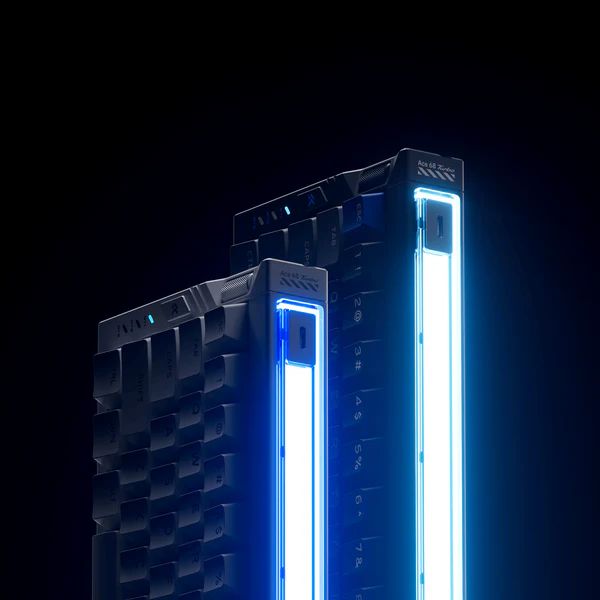Give it up for the MCHOSE Ace 68 Turbo, the world's first 16 kHz keyboard and surely the last word in technological overkill
So fast it Hz.

Fans of absolutely asinine technological overkill rejoice. Your keyboard has arrived. May we present the MCHOSE Ace 68 Turbo, the world's first keyboard with a 16 kHz polling rate.
What possible benefit could this have, you ask? Well, lower latency is the obvious answer. In other words, less lag between stabbing a key and having something happen in-game and on-screen. The question is, of course, at what point does lower latency become undetectable to human senses?
According to MCHOSE itself, the 16 kHz version of the Ace 68 Turbo only improves latency over the (presumably cheaper) 8 KHz variant by 0.02 ms, with the Turbo sitting at 0.06 ms rather than 0.08 ms. So, we are talking about hundredths of a millisecond. Can anyone actually feel that?
Cue an army of twitch gamers pointing out the huge benefits of 8 kHz mice and how they couldn't possibly slum it with—eugh!—a 4 KHz rodent. Or whatever.
Likewise, it wasn't that long ago that the idea of a, say, 500 Hz monitor seemed a bit silly. Surely anything beyond about 240 Hz was beyond human perception? Well, that no longer seems to be the case. And yet, I'd still take some convincing that there's real-world benefit in a 16 kHz keeb.
There is, of course, the thorny issue of CPU performance in association with very high peripheral polling rates. 8 kHz mice, for instance, are known to induce noticeable CPU load. So, if the price you pay for lower keyboard latency is higher overall game engine latency, that hardly makes sense.
However, according to one well-respected authority, high polling rates for keyboards don't necessarily pose the same performance problems as mice. To quote keyboard specialist Wooting in relation to its 8 kHz-capable 80HE keyboard:
Keep up to date with the most important stories and the best deals, as picked by the PC Gamer team.
"In our testing we haven’t measured any performance issues or a significantly increased CPU load. Mice that poll at 8k are constantly sending relative position data updates to the computer which is known to cause increased CPU load, whereas the data stream sent by keyboard polling is very different. A PC should have no issues running the Wooting 80HE at 8 kHz. It is however possible to lower the polling rate of the keyboard."
Of course, 8 kHz isn't 16 kHz and perhaps at some point keyboard polling rate could become an issue.
For the record, the MCHOSE Ace 68 Turbo also sports a dual-core CPU, a 4-layer PCB, and Rapid Trigger switches with an accuracy of 0.001 mm. So, now you know.
Then there's the CNC-milled aluminium housing, Hall effect sensors and a dynamic RGB lightbar. When you factor all that in, the Ace 68 Turbo is not oppressively pricey at $99. So, if the polling rate is a gimmick, at least you're not paying massively for it.

1. Best overall:
Asus ROG Strix Scope II 96 Wireless
2. Best budget:
Gamakay x Naughshark NS68
3. Best mid-range:
Ducky Zero 6108
4. Best rapid trigger:
Wooting 80HE
5. Best wireless rapid trigger:
Keychron K2 HE
6. Best silent:
Be Quiet! Light Mount
7. Best tenkeyless:
Keychron Q3 Max
8. Best low profile:
NuPhy Air60 HE
9. Best ergonomic:
Kinesis Freestyle Edge RGB
10. Best membrane:
Roccat Magma

Jeremy has been writing about technology and PCs since the 90nm Netburst era (Google it!) and enjoys nothing more than a serious dissertation on the finer points of monitor input lag and overshoot followed by a forensic examination of advanced lithography. Or maybe he just likes machines that go “ping!” He also has a thing for tennis and cars.
You must confirm your public display name before commenting
Please logout and then login again, you will then be prompted to enter your display name.


